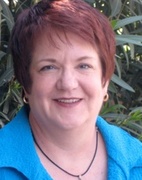 Courtesy Wossene Bowler
Courtesy Wossene Bowler
If she had faced cancer in her home country, Wossene Bowler knows she would not be alive today. For most people there, a cancer diagnosis is essentially a death sentence.
The Ethiopian-American decided to make the most of her personal “second chance” at life and built a nonprofit organization to bring contemporary cancer care to Africa’s oldest independent country.
There is only one cancer center in Ethiopia, a country with 80 million people, and Tikur Anbessa Hospital has extremely limited resources. Ethiopia is one of Africa's poorest states, with only one doctor for every 40,000 residents. The economy revolves around agriculture; the country is one of Africa's leading coffee producers.
Bowler moved from Ethiopia to the United States in 1980. She graduated from the California Institute of Arts, studied in the master’s program and moved to Singapore with her husband. A cancer diagnosis brought her back to California for medical care in 2000.
Bowler had developed a rare blood cancer, chronic myelogenous leukemia. (Also known as chronic myelocytic leukemia) Her treatment included chemotherapy and a life-saving bone marrow transplant at the City of Hope Hospital. Bowler said this was one of the most difficult times of her life.
After the transplant and recovery, she returned to Ethiopia to be with family and make good on a promise. During her treatment, her parents asked friends and church members to pray for her recovery. They also promised, if she recovered, to take her to churches throughout Ethiopia to share the story of her faith and “God’s hand in caring for her” during her illness.
For two years, Bowler lived with no recurrence of the leukemia, however, some of the donor cells had not fully grafted during her transplant and the disease returned. At this point a revolutionary oral form of targeted drug therapy was available to treat, but not cure, CML.
For a while she was depressed, but that changed. “I suffered for a few weeks but one morning I snapped out of it,” she said. “It was clear to me then, I survived for a purpose, and that is to do good and to pay back what I received from the people who helped me. I decided to establish a foundation and named it the Life’s Second Chance Foundation (LSCF).”
Her goal is to build a hospital about 45 miles from the capital city of Addis Ababa. Ultimately, she hopes to create a complex complete with housing, research and training, an orphanage and a rehabilitation center. In 2007, the Ethiopian government donated 134 acres of land. ”The whole city is ready to help me build,” she explained. “We have volunteers, and will be able to hire Ethiopian designers and engineers for the project.”
Bowler now dedicates all of her time to raising funds. Until the hospital becomes a reality, LSCF provides equipment and medication to Tikur Anbessa Hospital to offer immediate help to current patients. LSCF has already given the hospital incubators, mammogram equipment and medical supplies.
Bowler is acutely aware that if she had been living in Ethiopia at the time of her own cancer diagnosis, the outcome may have been very different. She pointed out that while there have been many global efforts to stop the spread of HIV/AIDS and other infectious diseases in the developing world, the rise of cancer is largely overlooked, despite the fact that every year at least 7.6 million people die from cancer, more than HIV/AIDS, malaria and tuberculosis combined.
Additionally, many cases go entirely undiagnosed and untreated, and, therefore, are not included in statistics. Bowler pointed to the shockingly high amounts of cervical cancer in underdeveloped parts of the world. In sub-Saharan Africa alone, 50,233 women die annually, despite the existence of effective screening methods and the human papillomavirus (HPV) vaccine. Lack of awareness, she explains, is an enormous part of the problem.
The foundation offers many ways people can provide support, including the recent introduction of the New Awakenings coffee company which gives profits to LCSF. “Coffee has its beginnings in Ethiopia, the original home of the coffee plant,” said Bowler. “The growth and production of coffee here has a rich and colorful history that reaches back over 1,000 years.” Future plans call for establishing foundation chapters throughout the U.S. and in Canada, Europe and Africa.
Resources:
Life’s Second Chance Foundation: http://lifessecondchance.org/
Stand Up 2 Cancer: Life's Second Chance: Cancer In The Developing World
http://www.standup2cancer.org/node/4497
Laguna Beach Independent: A Survivor Pursues a Cancer Center Where None Exists
http://www.lagunabeachindependent.com/news/2008-08-15/Front_page/004.html





Add a CommentComments
There are no comments yet. Be the first one and get the conversation started!